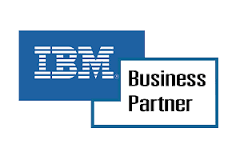Find the opportunities
in AI and Expert Systems in 2020 from the developer of PC StockCast,™
developed in 1986 for forecasting the Dow Jones Industrials, precious
metals, and foreign currencies.
Early education
models included the Hispanic Math Project at Arizona State University
for teaching mathematics K-12 with expert system diagnostic evaluation
and educational modeling.
In 2019, Internet
users constantly are using Artificial Intelligence online. Search
Engine Marketing (SEO) is a key application of AI. SEO requires
an AI agent to parse the request and deliver relevant content.
Current experiments
in AI include Siri, Alexa, Cortana, and other virtual assistants.
AI use on the horizon includes automated transportation, smart cities,
home robotics
-Autonomous transportation
will become commonplace from multiple providers. -Robots will be
an extension of the individual -Smart cities will be run by expert
systems to conserve resources In 1971, the author was able to intern
at Stanford Research Institute, and work on early code for “Shaky.”
For a foundation in AI and Expert Systems, check the YouTube video
at: https://www.youtube.com/watch?v=7bsEN8mwUB8. Source: http://www.ai.sri.com/shakey/
According to the
IBM Institute for Business Value, in a recent publication: “Shifting
toward Enterprise-grade AI:” The key elements to implementing AI
into the Business Strategy includes:
– “Develop your
AI-enabled business strategy. The vision needs to come from the
top with clear desired business outcomes and focus on permeating
the mandate throughout the organization.
– Bring the focus back to data. Every enterprise has some data that
is clean and useful. Don’t let poor data quality or quantity be
an excuse to put off the journey to AI. Instead, start with the
data you have and then use AI as a catalyst for investing in a solid
data platform that brings together external licensed and public
data to drive broad data sets that enable the training of AI algorithms.
– “Quickly move from strategy to execution. Pick a starting point
that makes sense for your organization and your business objectives.
Execute quickly, show iterative results and earn the right to scale.
Communication with stakeholders is critical. – Build a path to scale
with appropriate skills and change management practices. Scale by
building the team and skills required to grow and leverage AI through
internal hires and use of strategic partners while practicing good
stakeholder, cultural and change management in order to execute
on the business transformation mandates set out by leadership.”
– Downloaded from https://www.ibm.com/downloads/cas/QQ5KZLEL, on
October 2, 2019.
Call Silicon Networks
today for risk free evaluation: (775) 945-9825
Silicon Networks
Group is an authorized IBM Business Partner.





